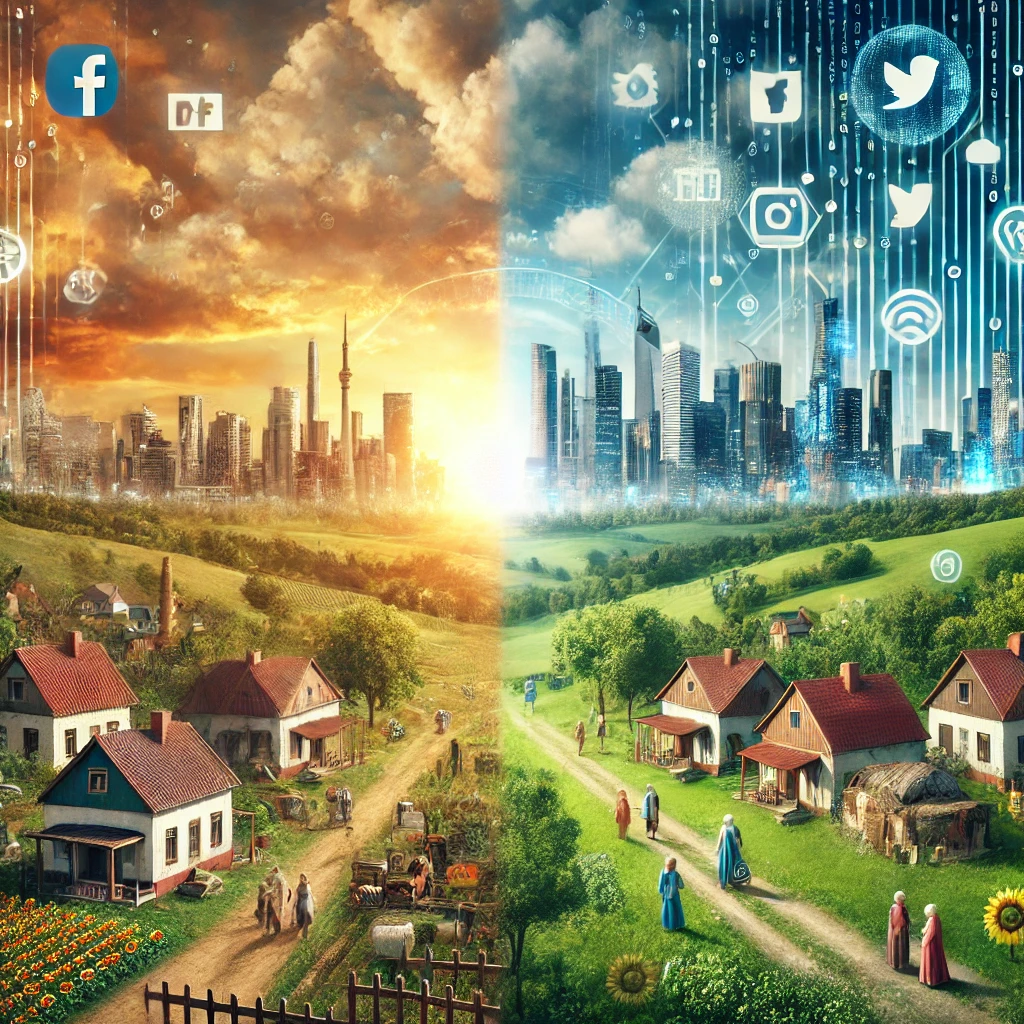Social values are the principles that shape how we interact, live, and relate to others. They are not static. Instead, they evolve in response to technological shifts, cultural changes, and global events. The future of social values will reflect these changes, influenced by advancements in technology, growing environmental concerns, and the increasing push for social justice. Let’s dive into how social values will evolve in the coming years and what we can expect for society’s future.
Global Connectivity: Breaking Down Cultural Barriers
In the digital age, the world is more connected than ever before. Social media, global trade, and the internet allow us to interact with people from different cultures daily. As a result, social values are likely to evolve towards embracing diversity. Cultures will become more integrated, and norms that once seemed distant may now be understood and respected worldwide.
However, increased interconnectedness brings both opportunities and challenges. While it’s easy to share ideas, the rise of misinformation can distort public opinion. As a result, social values will have to adapt to include new skills, like critical thinking and media literacy. People will need to learn how to sift through information and develop a more nuanced understanding of global issues.
For example, values such as empathy and inclusivity are expected to gain prominence. People will likely place more value on understanding others’ experiences, leading to a deeper global consciousness. In a world where boundaries blur, we can expect social values to reflect a growing respect for the richness of cultural differences.
Technology and Its Influence on Social Values
The future will bring even more technological advancements. Artificial Intelligence (AI), automation, and data analytics are just a few examples. These innovations will reshape social values in unexpected ways.
AI and automation may lead to job displacement for many. As people find themselves in new roles, social values may shift toward compassion and empathy. Societies might embrace policies that focus on retraining workers, making sure no one is left behind. This shift will emphasize human dignity over economic efficiency.
Furthermore, technology will also bring about new ethical concerns. People will need to consider questions like: What happens to privacy when AI knows everything about you? How do we ensure fairness in automated decision-making? These concerns will challenge existing norms and force society to adapt its values to the new technological landscape.
In the coming decades, expect values surrounding data privacy, transparency, and fairness to be at the forefront of discussions. Society will likely demand greater accountability from tech companies, and individuals may begin to take a more active role in how their data is used.
Environmental Responsibility: A Growing Concern
One of the most significant factors driving social change is the increasing awareness of environmental issues. Climate change, resource depletion, and environmental degradation are all pressing problems. People are becoming more conscious of the need for sustainability, and social values will reflect this shift.
As we face the consequences of environmental harm, social values will likely focus on collective responsibility. People may prioritize eco-friendly choices, from reducing waste to choosing sustainable products. This could extend to businesses as well, where consumers will increasingly demand companies to adopt environmentally responsible practices.
In fact, sustainable living is already gaining traction. Future generations will likely place even more importance on environmental stewardship. This could mean that sustainable practices, such as reducing carbon footprints, conserving water, and recycling, will become essential parts of social values.
Inclusivity and Equality: A Focus on Social Justice
Another major shift in social values will be the growing emphasis on inclusivity and equality. Over the past few years, movements like Black Lives Matter, #MeToo, and LGBTQ+ rights have sparked global conversations. These movements have highlighted the importance of fair treatment and respect for all people, regardless of race, gender, or sexual orientation.
As society continues to evolve, social values will likely center more around human rights and social justice. People will place more importance on ensuring that everyone has an equal chance to thrive. Discrimination of any kind—whether based on race, gender, or ability—will become increasingly unacceptable.
The Future of Work: How Social Values Will Change
With the rise of remote work, gig economies, and flexible hours, the workplace is transforming. These changes will influence social values by shifting the way we think about work-life balance, productivity, and success.
Future generations may redefine the meaning of success. Instead of just financial gains, people might place greater importance on job satisfaction, work-life balance, and mental well-being. This shift could lead to an increase in values that promote well-being, both at work and in personal life.
Additionally, the nature of work will likely become more collaborative and team-oriented. As industries continue to globalize, people may work with teams spread across various continents. Social values will thus shift towards valuing cooperation, adaptability, and respect for diverse working styles.
The Role of Education in Shaping Future Social Values
Education will play a pivotal role in shaping future social values. As the world continues to change, schools and universities will need to adapt their curricula to meet new demands. This might include teaching students to be more socially responsible and environmentally conscious.
Educational institutions will likely place greater emphasis on developing empathy, critical thinking, and problem-solving skills. These qualities will be essential for future generations as they navigate a rapidly changing world. As people become more globally connected, values like tolerance and respect for diverse viewpoints will be crucial.
What’s Next for Social Values?
As we look ahead, we can expect social values to become increasingly focused on sustainability, inclusivity, and fairness. Technology, environmental concerns, and social justice movements will drive these changes, but so will the people who push for progress. As global challenges mount, new generations will be tasked with adapting and evolving social values to ensure a more just, sustainable, and connected world.
Key Social Value Trends for the Future
Here’s a quick look at some of the key trends we can expect:
| Trend | Impact on Social Values |
|---|---|
| Global Connectivity | Increased cultural exchange and acceptance of diversity. |
| Technological Advancements | Shift towards privacy, transparency, and fairness in technology. |
| Environmental Concerns | Rise of sustainability as a core societal value. |
| Social Justice Movements | Greater focus on inclusivity, equality, and human rights. |
| Future of Work | Emphasis on work-life balance, well-being, and cooperation. |
Conclusion: Navigating the Future of Social Values
The future of social values will be shaped by multiple factors: technology, environmental challenges, and the drive for social justice. As we become more connected globally, our values will adapt to reflect a greater sense of empathy, sustainability, and fairness. Change is inevitable, but if we approach it with intention and responsibility, society can shape a future that benefits everyone.
In this evolving landscape, the power to influence social values lies not just with policymakers but with each individual. We all have a role to play in shaping the values that define the future. The next generation will need to carry the torch, embracing change while staying grounded in principles of fairness, sustainability, and inclusion.
By remaining engaged and mindful, we can create a future where social values serve the greater good of all. Let’s make it happen.

